 image/jpeg 663196abb4e68.image.jpg?resize=300,414
image/jpeg 663196abb4e68.image.jpg?resize=300,414
We’re looking for a full-time reporter to cover Pilsen, Little Village and Back of the Yards.
Block Club Chicago, a nonprofit news organization focused on Chicago’s diverse neighborhoods, is looking for a full-time bilingual reporter to cover Pilsen, Little Village and Back of the Yards.
As a beat reporter for this group of neighborhoods, you’ll be expected to cover everything from local school council meetings and breaking news to restaurant openings and real estate developments. Night meetings are common. This is not a 9–5 job (though it is typically Monday-Friday).
Block Club reporters are expected to build sources and contacts in the communities they cover. Plan on getting texts and emails from neighbors and becoming a well-known fixture in your neighborhood. This is a remote position (we want you to be embedded in the community), but we’ll have staff meetings in our Downtown office and you’ll check in with your editor several times a day.
This is not a job for someone who wants to write one story a week. You’ll be expected to have one or two fresh stories daily. There will be opportunities to work on longer-form investigative pieces, but the majority of the job is keeping your readers up to date on daily news from the neighborhood.
The Skills
Familiarity with Pilsen, Little Village and Back of the Yards (residents or former residents of these neighborhoods are encouraged to apply)
At least two years of daily news reporting experience
Ability to conduct interviews in English and Spanish
Ability to shoot your own photos in the field
Experience promoting your stories on social media
Ability to generate story ideas and willingness to hear from neighbors and readers
Experience covering community meetings or a neighborhood beat a plus
Willingness and ability to cover breaking news and turn around stories quickly
The Perks
Salary: Commensurate with experience; range starts at $60,000
Full benefits (medical, dental, vision), 401K match
Generous vacation policy, plus paid holidays, paid sick and parental leave
Supportive, scrappy, tight-knit editorial team
Requirements
This position is based in Chicago and requires the person to live in the Chicago area. Fluency in Spanish is required, as reporters on this beat will often need to conduct interviews in Spanish.
This is a work-from-home role, but the reporter should expect to work from the neighborhoods they serve several days a week and sometimes work from our Downtown office.
A commitment to diversity, equity and inclusion is required. Block Club believes the diversity of our community is a fundamental strength of our region. Our mission is best fulfilled when we embrace diversity as a value and a practice. We maintain that achieving diversity requires an enduring commitment to inclusion that must find full expression in our organizational culture, values, norms and behaviors. Throughout our work, we will support diversity in all of its forms, encompassing but not limited to age, disability status, economic circumstance, ethnicity, gender, race, religion and sexual orientation.
How To Apply
Send us an email telling us why you’d be a good fit for the job along with your resume and 3 or 4 of your best stories to jobs (at) blockclubchi (dot) org along with two references. Put “Pilsen Reporter” in the subject line, please!
Please include news clips and not marketing or copywriting samples. If your clips are behind a paywall, please send a PDF version.
Deadline to apply: May 24, 2024
About Us
Block Club Chicago is a nonprofit, reader-funded newsroom dedicated to delivering reliable, nonpartisan and essential coverage of Chicago’s diverse neighborhoods.
Our newsroom was founded in 2018 by former DNAinfo Chicago editors and reporters after the award-winning site abruptly shuttered. We decided to call ourselves Block Club because we felt it reflected our mission: to build community through truly ground-level reporting of the city’s neighborhoods.
In just five years, Block Club has transformed from scrappy startup to one of the most read news organizations in Chicago by being responsive to the city’s neighborhoods. Our team of 31 full-time journalists publish more than a dozen stories daily from every corner of the city and inform Chicagoans through our neighborhood newsletters, “It’s All Good” podcast, “On The Block” TV show and free, bilingual COVID-19 hotline.
Block Club has been named Editor & Publisher’s Best News Site, LION’s Publisher of the Year, INN’s Community Champion of the Year and we are proudly home to Chicago’s 2021 Journalist of the Year.

Block Club Chicago, a nonprofit news organization focused on Chicago’s diverse neighborhoods, is looking for a full-time reporter to cover the Garfield Park, North Lawndale and Austin neighborhoods on Chicago’s West Side.
As a beat reporter for this group of neighborhoods, you’ll be expected to cover everything from local school council meetings and breaking news to restaurant openings and real estate developments. Night meetings are common. This is not a 9–5 job (though it is typically Monday-Friday).
Block Club reporters are expected to build sources and contacts in the communities they cover. Plan on getting texts and emails from neighbors and becoming a well-known fixture in your neighborhood. This is a remote position (we want you to be embedded in the community), but we’ll have staff meetings in our Downtown office and you’ll check in with your editor several times a day.
This is not a job for someone who wants to write one story a week. You’ll be expected to have one or two fresh stories daily. There will be opportunities to work on longer-form investigative pieces, but the majority of the job is keeping your readers up to date on daily news from the neighborhood.
The Skills
Familiarity with the West Side of Chicago and the ability to regularly work in the beat and get yourself to and from interviews, press conferences, meetings, etc.
At least two years of daily news reporting experience
Ability to shoot your own photos in the field
Experience promoting your stories on social media
Ability to generate story ideas and willingness to hear from neighbors and readers
Experience covering community meetings or a neighborhood beat a plus
Willingness and ability to cover breaking news and turn around stories quickly
The Perks
Salary: Commensurate with experience; range starts at $60,000
Full benefits (medical, dental, vision), 401K match
Generous vacation policy, plus paid holidays, paid sick and parental leave
Supportive, scrappy, tight-knit editorial team
Requirements
This position is based in Chicago and requires the person to live in the Chicago area.
This is a work-from-home role, but the reporter should expect to work from the West Side several days a week and sometimes work from our Downtown office.
A commitment to diversity, equity and inclusion is required. Block Club believes the diversity of our community is a fundamental strength of our region. Our mission is best fulfilled when we embrace diversity as a value and a practice. We maintain that achieving diversity requires an enduring commitment to inclusion that must find full expression in our organizational culture, values, norms and behaviors. Throughout our work, we will support diversity in all of its forms, encompassing but not limited to age, disability status, economic circumstance, ethnicity, gender, race, religion and sexual orientation.
How To Apply
Send us an email telling us why you’d be a good fit for the job along with your resume and 3 or 4 of your best stories to jobs (at) blockclubchi (dot) org along with two references. Put “West Side Reporter” in the subject line, please!
Please include news clips and not marketing or copywriting samples. If your clips are behind a paywall, please send a PDF version.
Deadline to apply: May 24, 2024
About Us
Block Club Chicago is a nonprofit, reader-funded newsroom dedicated to delivering reliable, nonpartisan and essential coverage of Chicago’s diverse neighborhoods.
Our newsroom was founded in 2018 by former DNAinfo Chicago editors and reporters after the award-winning site abruptly shuttered. We decided to call ourselves Block Club because we felt it reflected our mission: to build community through truly ground-level reporting of the city’s neighborhoods.
In just five years, Block Club has transformed from scrappy startup to one of the most read news organizations in Chicago by being responsive to the city’s neighborhoods. Our team of 31 full-time journalists publish more than a dozen stories daily from every corner of the city and inform Chicagoans through our neighborhood newsletters, “It’s All Good” podcast, “On The Block” TV show and free, bilingual COVID-19 hotline.
Block Club has been named Editor & Publisher’s Best News Site, LION’s Publisher of the Year, INN’s Community Champion of the Year and we are proudly home to Chicago’s 2021 Journalist of the Year.

By PETER HANCOCK
Capitol News Illinois
phancock@capitolnewsillinois.com
SPRINGFIELD – In 1977, then-President Jimmy Carter signed into law the Community Reinvestment Act, a federal law that sought to wipe away the last vestiges of racial discrimination and redlining in America’s home mortgage industry.
The idea was simple. By requiring lenders – primarily banks – to make credit available in all parts of the communities they served, including low- and moderate-income neighborhoods, the government could redirect the flow of private capital back into areas that had suffered from decades of systemic disinvestment.
Nearly half a century later, many people in Illinois argue the federal CRA has failed to live up to its promise. Whether that’s because the law was too narrow in scope, or because the lending business itself has changed dramatically over the decades, urban metropolitan areas like Chicago are still plagued with crumbling neighborhoods where few lenders are willing to invest.
“My area is the southeast side of Chicago, so if you want to talk about Woodlawn, Hyde Park, South Chicago, I mean, these are places where you have a significant amount of folks who are not white and upper-middle class. So yeah, there’s been a problem,” Rep. Curtis Tarver, D-Chicago, said during a recent interview.
Tarver was among the sponsors of a 2021 bill that enacted a new state-level Community Reinvestment Act. Passed during a special lame duck session in January that year, it was part of the Legislative Black Caucus’ “four pillars” of social and economic reform measures that grew out of unrest that began sweeping across minority communities throughout the United States the previous summer.
“There were a few things that happened in 2020,” recalled Jane Doyle of the Chicago-based Woodstock Institute, one of the main backers of the bill. “Of course, the pandemic, the ways that the pandemic exposed racial disparities in our economy and our health care system, pretty much all parts of society. There was the murder of George Floyd and the Black Lives Matter protests that ensued after that.”
But more specific to Chicago and the lending industry, Doyle said, was an investigative news story entitled “Where Banks Don’t Lend,” by public radio station WBEZ and the nonprofit news organization City Bureau. It was released June 3, 2020, less than two weeks after Floyd’s death.
“The sort of big summary data point that came out of that is that there was more mortgage capital invested in one majority-white community in Chicago than all majority-Black communities combined,” Doyle said.
It was against that backdrop that the Legislative Black Caucus pushed through the Illinois Community Reinvestment Act, a part of its “Economic Access, Equity, and Opportunity” pillar.
Unlike the federal law, which applies primarily to nationally chartered banks, the state law applies to state-chartered banks and savings banks, credit unions and non-bank mortgage lenders.
It provides that every institution covered by the law has a “continuing and affirmative obligation to meet the financial services needs of the communities in which its offices, branches, and other facilities are maintained.” It also empowers the Illinois Department of Financial and Professional Regulation to conduct examinations to measure each institution’s compliance with the law.
Much like the federal law, the state law does not impose specific mandates or establish any type of lending quotas on financial institutions. It does, however, require them to report on a periodic basis such things as the number and amount of mortgage loans and small business loans they make, the extent of their marketing activities to make community members aware of their services, and their participation in community development and redevelopment programs.
It also gives IDFPR authority to review those reports and assign rating scores to each institution, classifying their compliance record as either “outstanding,” “satisfactory,” “needs to improve,” or “substantial noncompliance.”
Gov. JB Pritzker signed the bill into law March 23, 2021, and the law was supposed to be in full effect by Jan. 1, 2022.
That, however, proved to be more difficult than originally thought. The process of writing administrative rules to implement the law dragged on for nearly three years while regulators and industry officials negotiated the details of what information would have to be reported and how that information would be handled by the agency.
Those negotiations finally came to an end in April when the legislative Joint Committee on Administrative Rules, or JCAR, gave its blessing to the final rules, which now await publication in the Illinois Register before they are considered official.
“I knew it was hotly discussed and debated,” Sen. Chris Belt, D-Swansea, the bill’s chief Senate sponsor, said in an interview. “I’m not on JCAR so I don’t know why it took so long. I know it was a lot of issues and nuances that they were discussing. I’m just glad that is over now.”
Belt is also the lead sponsor of a follow-up bill this year, Senate Bill 3235. It calls on the state’s Commission on Equity and Inclusion to conduct studies that will provide baseline information to identify geographies in Illinois where significant disparities exist in access to financial products and services, along with a listing of existing policies and practices that may have disparate impacts or discriminatory effects.
That bill passed out of the Senate April 18 and now awaits action in the House.
Capitol News Illinois is a nonprofit, nonpartisan news service covering state government. It is distributed to hundreds of newspapers, radio and TV stations statewide. It is funded primarily by the Illinois Press Foundation and the Robert R. McCormick Foundation, along with major contributions from the Illinois Broadcasters Foundation and Southern Illinois Editorial Association.

Capitol News Illinois announced today it will produce the long-running “Illinois Lawmakers” program this spring, in partnership with longtime host and producer Jak Tichenor.
“This new partnership is absolutely critical to providing Illinois residents with reliable, independent, in-depth, up to date coverage from the Illinois Capitol after many newspapers and broadcasters shuttered their Statehouse bureaus over the last decade,” Tichenor said of the announcement.
“Illinois Lawmakers” is the longest-running television series offering continuing coverage of the Illinois General Assembly, having done so for the past 38 years. Capitol News Illinois will continue producing the respected program in a manner that largely leaves the show’s familiar format unchanged, but with a significant upgrade in its distribution. Beginning with the first episode this May, “Illinois Lawmakers” will be distributed to all radio and public and commercial broadcast outlets across Illinois and its border states.
The program debuted statewide on the state’s nine Illinois public television stations in 1986 with political analyst Bruce DuMont as host and WTTW Chicago’s Marty McLaughlin as executive producer. “Illinois Lawmakers” was launched by the Illinois Public Broadcasting Council and a bipartisan group of House and Senate lawmakers who sought to create a series on the General Assembly that was impartial, bipartisan, and in-depth in the spirit of the “PBS Newshour.” The program frequently offers breaking news coverage with lawmakers coming right off the floor to debate the issues of the day.
“I couldn’t be happier in this new venture,” CNI Broadcast Director Jennifer Fuller said. “In making this great coverage available for all of our broadcast partners, we’re continuing our mission of providing reliable, experienced reporting to a larger audience – keeping the public informed about what’s happening in their government.”
Legislative leaders of both parties, committee chairs, as well as rank-and-file lawmakers from border to border are regular guests on set in the Speaker’s Gallery in the Illinois House of Representatives. Live coverage of the governor’s annual State of the State speeches and budget messages have been a staple of the series from the very start, along with the annual fall veto session.
CNI also announced that several sponsorship level opportunities are available to offset production costs.
“Although the show is free for its viewers, there are costs associated to produce the episodes,” CNI Executive Director Jeff Rogers said. “To help offset these costs, we have established several sponsorship levels and are seeking financial support to ensure that this important programming remains on air beyond this legislative session.”
Programs will begin weekly production in May and continue through the end of the spring legislative session. You can find each episode at capitolnewsillinois.com/illinois-lawmakers. For more information on sponsorship opportunities, contact Jeff Rogers at jrogers@capitolnewsillinois.com or call (815) 238-7806. You may also reach out to Jennifer Fuller at editors@capitolnewsillinois.com or call (217) 241-3366 ext 108.
Capitol News Illinois is a nonprofit, nonpartisan news service covering state government. It is distributed to hundreds of print and broadcast outlets statewide. It is funded primarily by the Illinois Press Foundation and the Robert R. McCormick Foundation, along with major contributions from the Illinois Broadcasters Foundation and Southern Illinois Editorial Association.
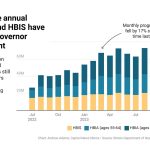
By PETER HANCOCK
and JERRY NOWICKI
Capitol News Illinois
news@capitolnewsillinois.com
SPRINGFIELD – Immigrant rights advocates on Friday continued to push for one of their top budget priorities: full funding for state-run health care programs that benefit noncitizens, regardless of their immigration status.
Those programs offer health coverage for low-income individuals who would otherwise qualify for Medicaid if not for their immigration status. They have been the source of controversy in the General Assembly, especially after the initial cost of the programs far outpaced the original estimates, forcing Gov. JB Pritzker’s administration to begin capping enrollment and instituting other cost-cutting measures last year.
But advocates for those programs unveiled a new report Friday by the University of Illinois Chicago’s Great Cities Institute that purports to show how the benefits of providing health coverage to the state’s immigrant population extend beyond those individuals to their families, communities and society at large.
“Ample research has shown that coverage improves labor force participation, which adds value to tax bases and reduces the need for financial assistance,” Samantha Sepulveda, one of the authors of the report, said at a gathering of program supporters Friday in Chicago. “It increases early disease detection which reduces long-term medical costs. It relieves financial hardship which helps individuals and members of their household and also improves health outcomes.”
The report focuses on two programs that provide Medicaid-like health coverage to noncitizen adults – Health Benefits for Immigrant Seniors, which began in 2020 and covers noncitizens age 65 and older; and Health Benefits for Immigrant Adults, which began in 2021 and now covers noncitizens age 42-64.
Although the programs offer health benefits similar to those provided under Medicaid, they do not qualify for federal cost sharing under Medicaid and, thus, are funded entirely with state resources.
The state has offered reduced-cost health care coverage to noncitizen children under 18 in its All Kids Program since 2006.
Key findings
The report argues that noncitizens are employed at a slightly higher rate than the adult population as a whole in Illinois, so providing that group with health coverage promotes a healthier and more productive labor force.
It also argues that medical coverage reduces financial strain and medical debt for a group that would otherwise be uninsured and that covering noncitizen adults results in improved developmental outcomes for their children.
In addition, it argues that insuring the noncitizen population results in many of the same economic benefits as increasing coverage rates among the rest of society. Recipients will be less likely to postpone needed care, according to the report, which in turn prevents unnecessary emergency room usage, the costs of which are either never recovered or spread to those with insurance. The report noted the programs also improve overall health outcomes by encouraging routine checkups and preventive care.
According to the state’s Department of Healthcare and Family Services, which oversees the programs, they cost $618 million combined in fiscal year 2023. Advocates from the Healthy Illinois campaign, which unveiled the report Friday, noted that accounts for just 0.6 percent of the state’s total budget, or about 1.2 percent of the state’s General Revenue Fund budget.
But as lawmakers sat down to approve the state’s budget last spring, Pritzker’s administration had projected the costs could rise to as high as $1.1 billion for fiscal year 2024. While advocates continued calls to expand the program to serve immigrants between the ages of 18 and 42, lawmakers ultimately gave the governor authority to limit enrollment and cap general revenue spending on the programs at $550 million.
Read more: Expected cost for Illinois’ noncitizen health care program grows to $1.1 billion
Pritzker, meanwhile, has proposed $629 million in spending on the program in the upcoming fiscal year that begins July 1, including a $440 million appropriation from the General Revenue Fund. An estimated $100 million would come from a federal emergency services match, with $50 million coming from drug rebate payments and $40 million from a state tax on Medicaid managed care organizations.
Pritzker’s fiscal year 2025 funding plan drew praise from the Healthy Illinois campaign after the governor unveiled it in February. The coalition’s statement drew a more conciliatory tone than when it accused the governor of “aligning himself with anti-immigrant Republicans” for placing enrollment caps on the program months earlier.
Read more: Pritzker quickly wields expanded authority to freeze noncitizen health care enrollment
“We recognize the real fiscal challenges facing the state, but urge both the General Assembly and the governor to pass a FY25 budget that fully funds the existing HBIA and HBIS programs as they currently exist in statute, with no caps and no co-pays,” Healthy Illinois Director Tovia Siegel said in a statement after the budget address.
Enrollment caps and cost trends
Pritzker’s enrollment caps for the HBIA program took effect on July 1, 2023, and the HBIS program was capped when it hit 16,500 enrollees weeks later.
Since then, enrollment in the programs has remained paused, and total enrollment has dropped from a high of about 69,300 in November 2023, to 66,430 as of the agency’s April 9 report.
Last month, HFS also noted it would begin the standard Medicaid redetermination process for the two programs. In March, a spokesperson said approximately 450 individuals are likely to be moved to Medicaid because they are legal permanent residents of at least five years; an estimated 5,200 individuals will be “closed” as of May 1 because they are no longer eligible; and approximately 6,000 individuals will lose coverage through the redetermination process.
Another roughly 6,300 individuals who have been legal permanent residents for less than five years will lose coverage and be referred to the Affordable Care Act Marketplace for alternative coverage.
The state also began transitioning enrollees from fee-for-service plans to Medicaid managed care, a system through which private insurers known as managed care organizations contract with the state to oversee routine and follow-up health care. An HFS update on program enrollment dated April 9 noted more than 45,500 enrollees had been transferred to managed care while 17,879 remained in fee-for-service plans.
The state also negotiated with managed care organizations to allow – but not require – them to charge copays or co-insurance for certain services provided. CountyCare in Cook County – where most program participants are served – has chosen not to charge those fees.
Read more: Copays take effect for immigrant health programs as cost estimates continue to decline
As of April 9, HFS projects the program to cost $697 million in fiscal year 2024. Those estimates are based on the number of enrollees and their average monthly costs, and they can fluctuate each month based on retroactive claims adjustments, provider rate changes and program enrollment, among other factors.
While higher than what’s budgeted in general revenues, the estimates have decreased significantly since September, when the agency projected the programs would cost $831 million in the first report following the announcement of enrollment caps.
In February, an HFS spokesperson said state cost-saving measures – as well as revenue-generating measures such as taking advantage of a new federal claiming methodology for emergency services – will help bring costs in line with the allocated budget amount. Additionally, the state expects the per-month costs for patients to continue to decrease as enrollees receive more regular care.
“Taking together these changes, we anticipate our costs will be in line with our budget projections as we near the end of the fiscal year, keeping in mind that these are still relatively new programs where costs have not been as stable as in more established programs,” a spokesperson said in a statement.
Capitol News Illinois is a nonprofit, nonpartisan news service covering state government. It is distributed to hundreds of newspapers, radio and TV stations statewide. It is funded primarily by the Illinois Press Foundation and the Robert R. McCormick Foundation, along with major contributions from the Illinois Broadcasters Foundation and Southern Illinois Editorial Association.
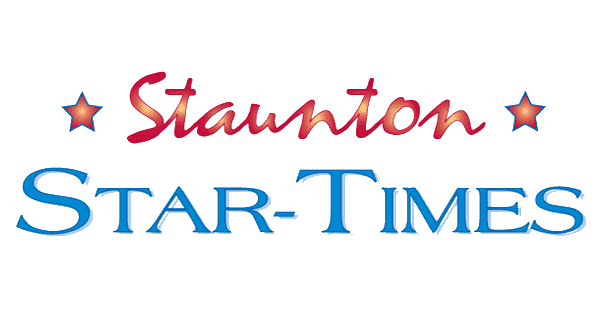
 image/png companylogo_facebook.png
image/png companylogo_facebook.png:quality(70):focal(3548x1506:3558x1516)/cloudfront-us-east-1.images.arcpublishing.com/shawmedia/MRNTROXZYJEPHKNZEN23XRIYXY.jpg)
 image/jpeg MRNTROXZYJEPHKNZEN23XRIYXY.jpg
image/jpeg MRNTROXZYJEPHKNZEN23XRIYXY.jpg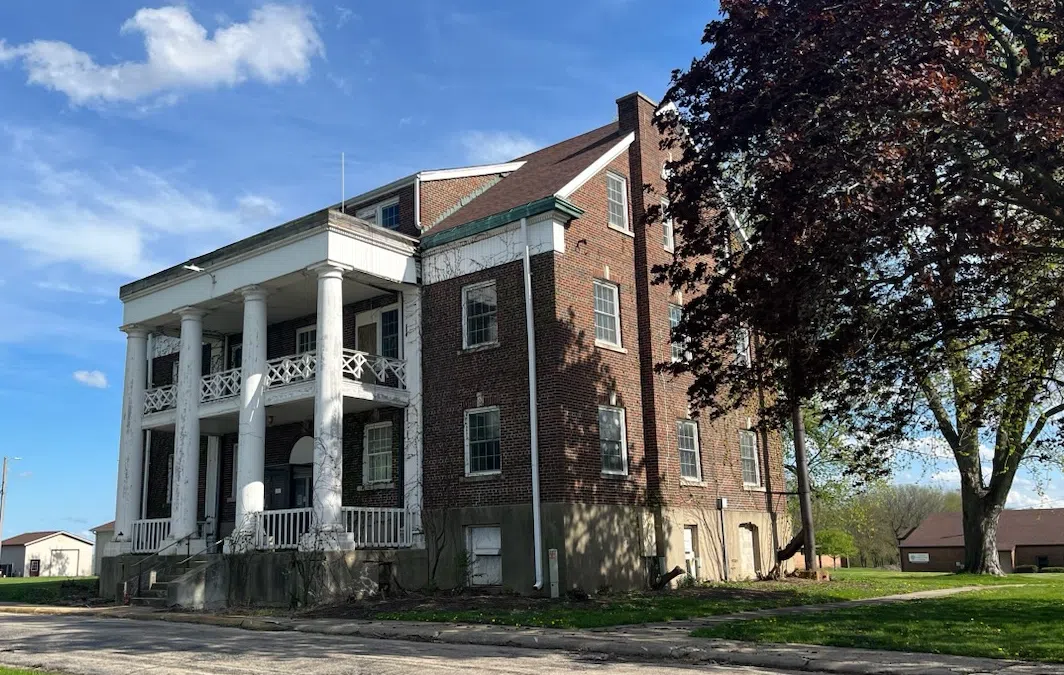
 image/png dixon-school-dempsey-1064x675.png
image/png dixon-school-dempsey-1064x675.pngFormer Gov. Pat Quinn has been around politics long enough to know the game is just beginning for the Chicago Bears getting a new stadium. “For the next month, you will see the Bears in a hurry-up offense,” Quinn said. “They will send an armada of lobbyist to Springfield to try and get their golden...
The post Former governor: Better ways to spend city, state funds than stadium first appeared on Chronicle Media.
The post Former governor: Better ways to spend city, state funds than stadium appeared first on Chronicle Media.
 image/jpeg 663167c81d778.image.jpg?resize=300,210
image/jpeg 663167c81d778.image.jpg?resize=300,210PEORIA (25News Now) - The Illinois Housing Development Authority (IHDA) is investing over $123 million in state and federal resources to support permanent supportive housing initiatives across the state. This funding aims to address homelessness and provide vital services for vulnerable populations.
Locally, Phoenix Manor at 415 St. Mark’s Court is benefiting from the investment, receiving $8 million in aid. The development, led by Phoenix Community Development Services, will repurpose the former Methodist College of Nursing into 55 units specifically designed for the homeless.
“This will be a development that allows our region to end chronic homelessness, so there is one master wait list for all of these kind of permanent housing slots in our region and this will allow us to eliminate that wait list and get that cleared off,” said to Christine Kahl, Phoenix Community Development Services CEO.
Construction for Phoenix Manor is scheduled to commence later this year, with the opening date expected to be finalized by late next year or early 2026.
You can watch 25News - any newscast, anywhere - streaming LIVE on 25NewsNow.com, our 25News mobile app, and on our WEEK 25News SmartTV streaming app. Learn more about how you can get connected to 25News streaming live news here.
Copyright 2024 WEEK. All rights reserved.
The 2024 elections are just seven months away, but a task force of state lawmakers, county officials and voters’ rights advocates are already thinking about the way Illinois residents will vote in the 2028 presidential primaries.
They’re mulling over a process called ranked choice voting, where voters can rank multiple candidates instead of choosing one candidate per party. The Illinois Ranked Choice Voting Task Force, which launched in January, has concluded its monthly meetings and is expected to release their report recommending whether to adopt the voting method to Illinois lawmakers in the coming weeks.
Ranked choice voting could be a monumental shift in how citizens, candidates and election authorities approach the electoral process in Illinois. Let’s break it down some more.
How does ranked choice voting work, exactly?
In an election where there are more than two candidates on the ballot, voters are given the opportunity to rank candidates in order of preference. If one candidate has 51% of the “first choice” votes, they win.
However, if no candidate receives a majority of “first choice” votes, the race is decided by an instant runoff vote. This is when the candidate with the fewest “first choice” votes is eliminated. Voters who ranked the eliminated candidate first will now have their “second choice” votes counted.
The process repeats itself, with the candidate earning the lowest rankings knocked out each round and their ballots redistributed, until one candidate gets at least 51% of the total vote.
Currently, Illinois uses what’s known as plurality voting, where voters pick one candidate and move on. The single candidate with the most number of votes wins, even if they did not earn more than half of all votes cast. Under a ranked choice system, a single candidate must earn more than half of the total number of votes cast in order to be declared victorious.
Where is ranked choice voting being used already?
As of February, roughly 50 jurisdictions nationwide have adopted ranked choice voting, according to election reform advocacy group FairVote. Maine and Alaska became the first states to adopt the method in 2016 and 2022, respectively.
Dozens of major cities – like New York City and San Francisco – have implemented or are planning to implement ranked choice voting for their municipal elections. This includes suburban Evanston, which plans to roll out the new system in April 2025.
What are the arguments for bringing ranked choice voting to Illinois?
Anika Bowie is a city council member in St. Paul, Minn., which has used ranked choice voting to elect their mayor and city council members for more than a decade.
In February, Bowie told the task force ranked choice allows candidates to gear their campaigns towards policy issues rather than political mudslinging since there often is no one “opponent” to rally against. FairVote Research and Policy Director Deb Otis calls this “positive campaigning.”
“A candidate might know, ‘I’m probably going to get 40% in the first round, but I’m going to need to be the second choice on 10% or more ballots,’ ” Otis said. “ ‘How do I get to be a second choice?’ It is not by attacking the voters’ first choice, it is by focusing on the issues that matter.”
Proponents of the new system also contend it’s more welcoming to women and candidates of color. Otis said her analysis of 448 ranked choice voting elections found that candidates of color tend to earn more votes whenever an eliminated candidate’s votes are transferred than white candidates.
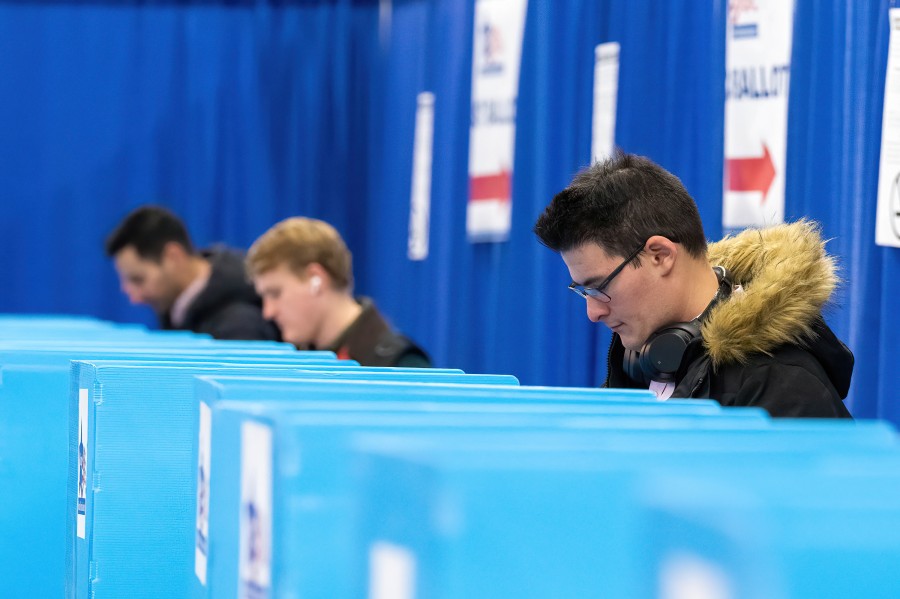
Her study also found that when a candidate of color is eliminated, ballots are more likely to transfer to other candidates of the same race or ethnicity.
“Communities of color use RCV to build power when there are multiple candidates of the same race or ethnicity on the ballot, rather than dividing community support,” Otis wrote.
That sentiment rings true for Bowie. At the February task force meeting, she said she’s seen more diverse candidates throwing their hats in the ring for municipal races. And because of that, St. Paul voters elected an all-women city council for the first time ever. All seven members are under the age of 40 and six members are women of color.
“Being a woman of color amongst a majority woman of color city council, this just opens up doors for more people, and more opportunities to be [civically] engaged,” Bowie said.
Ranked choice voting proponents have long touted voter engagement and empowerment as a reason for adopting the method, especially as recent polls show that voters across America are concerned about preserving democracy heading into the 2024 general elections.
“I think voters are not feeling optimistic right now,” Otis said. “It’s time to look for solutions that give voters more of a voice in our elections, so that we all feel like our vote is really impactful.”
What are critics of ranked choice voting saying?
During a March meeting of the Illinois task force, Sangamon County Clerk Don Gray held up a copy of a ranked choice ballot from a New York City municipal election, showing members that the ballot page is 19 inches long. Gray said the ballots they use in Sangamon County are 14 inches long.
“It would certainly require us to have more expense in terms of requiring the longer and bigger size paper,” Gray said.
Money seems to be at the heart of much of the opposition to bringing ranked choice voting to Illinois. Several county clerks from across the state testified about how expensive it would be to update the current ballot tabulating machines to count ranked choice ballots. In Illinois, election results are counted by local county clerks and then sent to the state board of elections for final approval.
Most machines in Illinois will require a software update from a third-party vendor to count the ranked choice ballots. A few, smaller counties that use older machines would have to be replaced entirely, according to a report from the Ranked Choice Voting Resource center.
Without state dollars, local jurisdictions would have to foot the bill.
Gray is also concerned about the added time it will take voters to mark their ballots, which could lead to longer lines at the polling booths. He said this could mean setting up more polling booths and hiring more election judges to oversee them.
With the increased expenses and potential voter confusion at how to fill out their ballots, McHenry County Clerk Joe Tirio said he doesn’t know what problem ranked choice voting would be solving.
“I think cats and dogs understand what being outnumbered is,” Tirio said. “That’s one of the things that makes our democracy so accessible to all, is that we all understand if this candidate gets one more than that candidate, then that first candidate wins.”
Mawa Iqbal covers Illinois politics for WBEZ.
This story is part of “The Democracy Solutions Project,” a partnership among WBEZ, the Chicago Sun-Times and the University of Chicago’s Center for Effective Government. Together, we’re examining critical issues facing our democracy in the run-up to the 2024 elections.
MALTA – Kishwaukee College will host an open house for its Career and Technical Education programs Wednesday.
The free open house will be held from 5 to 7 p.m. May 1 in the college’s Caukin Building, 21193 Malta Road, Malta.
The event will allow prospective students the opportunity to view the college’s equipment and labs and network with instructors, according to a news release. The featured programs include office systems, welding, criminal justice, horticulture, business and marketing, truck driver training, automotive technology and diesel power technology.
Attendees can park by the Caukin Building.
The CTE programs provide students with the training and skills necessary to fill in-demand roles in the local workforce. The programs also will offer students the opportunity to explore careers, gain real-world skills and establish college and career success options.
For information, visit kish.edu/cte.
 image/jpeg RZBW2RJ4IEVWTU3GS5BUV334RA.jpg
image/jpeg RZBW2RJ4IEVWTU3GS5BUV334RA.jpgLIV Golf will bring some of the top professional golfers in the world and international attention to Bolingbrook in September.
The village-owned Bolingbrook Golf Club will host the Chicago-area leg of the LIV tour Sept. 13-15.
The tournament is expected to attract about 30,000 spectators over the three days while giving Bolingbrook exposure like it’s never had before, Mayor Mary Alexander-Basta said.
The tournament will “showcase Bolingbrook on an international level,” Alexander-Basta said at an event held at the golf course clubhouse to celebrate the LIV announcement made Tuesday.

Warehouses sit in the background as golfers practice at the driving range at the Bolingbrook Golf Club on Tuesday, April 30, 2024. (Gary Middendorf/)
The LIV event is being moved from the Rich Harvest Farms golf course in Sugar Grove where it was held the last two years.
LIV Golf, which is funded by the Saudi Arabian government, was formed in 2021 to compete with the PGA Tour.
Top golfers including Phil Mickelson, Brooks Koepka and John Rahm, are among those expected to play at the Bolingbrook Golf Club in what will be “the only professional golf tournament in the Chicago area this year,” Alexander-Basta said.
The event also promises millions of dollars in economic impact with 7,700 hotel nights being taken by visitors who come with the tournament, she said.
“We are working closely with our police and fire departments to ensure the least possible impact on our local residents,” Alexander-Basta said.
She noted that an annual Fourth of July event at the Bolingbrook Golf Club attracts between 10,000 and 12,000 people and said the village is prepared to accommodate visitors to the LIV tournament, utilizing shuttles to bring spectators from remote parking areas.
Alexander-Basta was joined at the ceremony by former Bolingbrook Mayor Roger Claar, who envisioned the Bolingbrook golf course.

Former Bolingbrook Mayor Roger Claar speaks at a press conference held at the Bolingbrook Golf Club on Tuesday, April 30, 2024. (Gary Middendorf/)
“And they told me we’d never get a golf tournament. Guess what?” Claar said at the start of his remarks.
The course opened in 2002 and was designed by the late Arthur Hills, who designed courses across the country and around the world.
It was built on a corn field with “thousands of trees” planted on the site to turn it into a golf course, Claar said. He noted that the Bolingbrook Golf Club has been the site of the Tom Dreesen Celebrity Golf Tournament and Bo Jackson Give Me a Chance fundraiser outing.
The LIV tournament will be the club’s biggest event yet.
“We are thrilled to be televised around the world,” Claar said. “Our residents and KemperSports welcome the opportunity.”
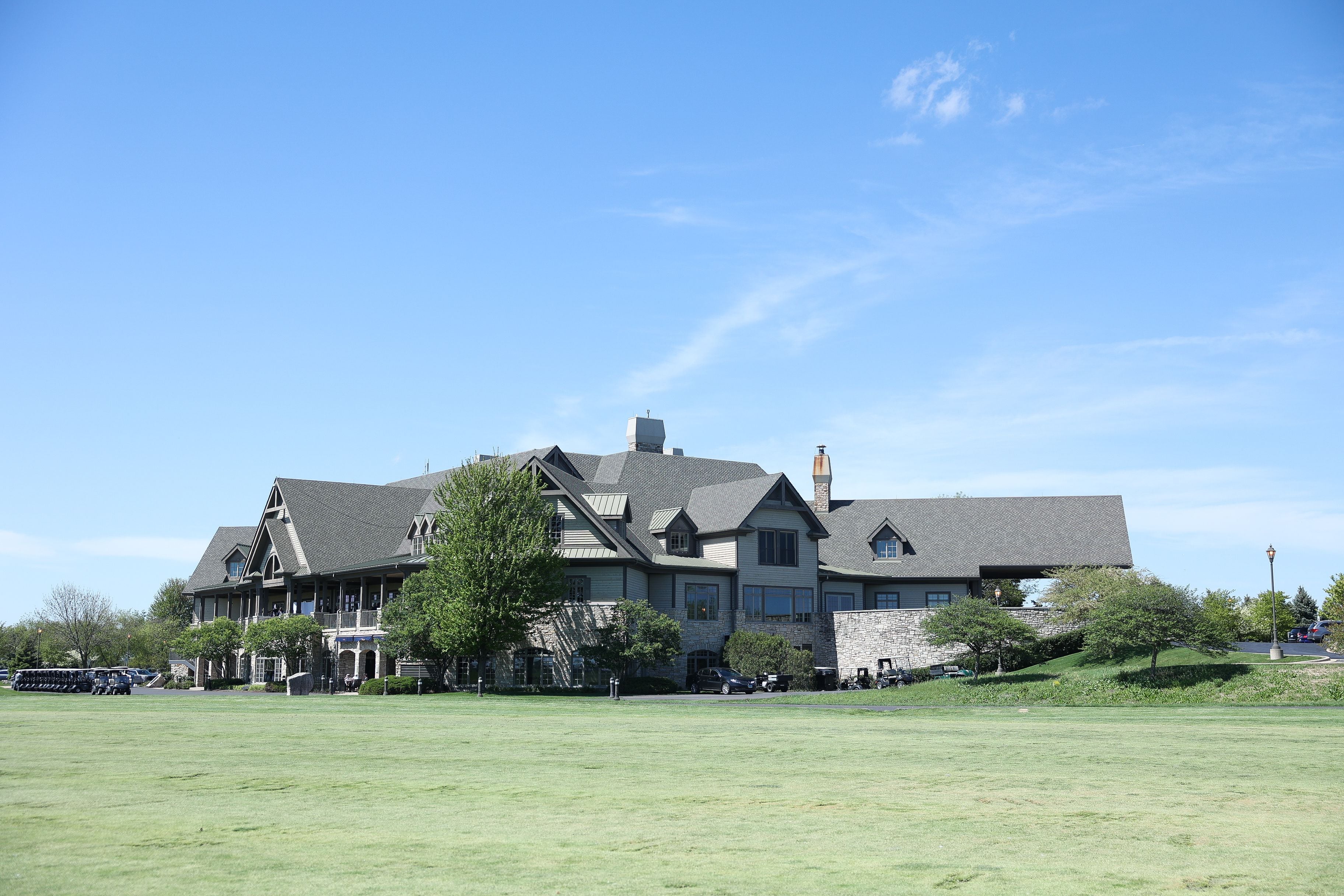
The club house for the Bolingbrook Golf Club is one of the prominent features of the golf course. (Gary Middendorf/)
KemberSports manages the golf course.
Alexander-Basta noted that the Bolingbrook Golf Club has received many recognitions and awards, including most recently being on on the NBC Golfpass list of Top 50 U.S. Public Golf Courses. Bolingbrook was ranked second on the 2024 list.
That kind of recognition apparently was noticed by LIV Golf, which contacted Bolingbrook four or five months ago to inquire whether the village would be interested in hosting a tournament, Alexander-Basta said.
“We acted quickly to try to get this to Bolingbrook,” she said.
"
 image/jpeg DW3ALFR5ORFDNGLWXDUKT2GSCA.JPG
image/jpeg DW3ALFR5ORFDNGLWXDUKT2GSCA.JPG